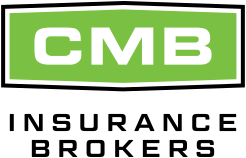
What are Surety Bonds? An Essential Overview
Navigating Surety Obligations
Understanding sureties is crucial for navigating financial agreements and obligations within the Canadian construction industry. A surety provides a formal assurance that a contractor will meet their obligations or else a guarantor will cover the costs. This safeguard is typically established through surety bonds, which are legal contracts binding one party to take financial responsibility if the other party defaults.
What is a Surety Bond in Canada?
A surety bond is a guarantee between one party who has an obligation to another party.
In Canada’s construction sector, surety bonds involve a tripartite agreement in which the contractor (Principal) commits to an obligation with the project owner (Obligee), and a third-party surety company backs this commitment.
The primary role of a surety bond is to assure the project owner that the contractor will adhere to the contract’s terms. Consequently, surety bonds safeguard owners, subcontractors, and suppliers against potential financial losses in the event of the main contractor’s default.
However, surety bonds extend beyond mere compensation for incurred losses. They provide two pivotal services to construction clients:
1. Pre-qualification: This is a vetting process to ascertain whether the contractor possesses the requisite qualifications to fulfill and complete the project per the contractual terms.
2. Security: The bond supplements the vetting process by securing the promise with the surety company’s financial assets. Should the contractor fail to meet their obligations or default in any way, the surety company is prepared to step in and ensure the project’s completion.
By offering both pre-qualification and security, surety bonds provide construction clients with not only financial protection but also peace of mind throughout the project’s duration.
Types of Surety
Surety bonds in Canada come with a legal stipulation: they must be issued by either federally or provincially licensed companies.
They primarily fall into two categories:
Contract Bonds: Predominantly used in construction, these bonds shield the owner from financial loss should the contractor fail to execute the contract terms. There are five common contract surety products catering to different stages of a contract:
· Pre-qualification Letter
· Consent of Surety/Agreement to Bond
· Bid Bond
· Performance Bond
· Labour and Material Payment Bond
These bonds are especially prevalent in securing public sector projects, ranging from construction contracts to service agreements and public-private partnerships.
Commercial Bonds: These bonds fulfill the security needs of public, legal, and governmental entities, guarding against financial risks. They ensure businesses or individuals adhere to requisite legal obligations and cover non-construction-related contracts such as supply and installation or service agreements.
Surety Bonds vs. Insurance
Many confuse surety bonds with insurance, but they have separate purposes. Insurance is an agreement between the insurer and the insured to cover unforeseen losses. Surety bonds involve an additional party and are focused on making sure specific obligations or agreements are met. This key distinction emphasizes that surety bonds are not about covering losses but ensuring responsibilities are fulfilled according to a contract.
Bond Application
The process of obtaining a surety bond is detailed and thorough. Applicants must submit comprehensive financial information, credit reports, and a record of their business operations. The extent of this scrutiny varies, depending on the specific type of bond and its amount. This ensures that the applicant has the ability to fulfill the commitments outlined in the bond.
Determining the Cost
The cost of a surety bond is not fixed; it’s typically a fraction of the bond’s total value. The cost is influenced by the applicant’s creditworthiness, the level of risk involved, and the bond’s value. Applicants with solid financial backgrounds and higher credit scores can generally expect to pay less.
FAQs
Can I get a surety bond with bad credit?
Yes, though options may be limited and costs higher.
What is the timeframe for obtaining a surety bond?
Timelines vary, from a few days for straightforward bonds to weeks for complex ones.
Are surety bonds refundable?
Generally, no. Premiums cover the risk assumed by the surety for the bond’s term.
Is a surety bond insurance for my business?
No, it protects the obligee, not the principal.
Finding a Reputable Provider
Surety bonds play a pivotal role in the Canadian construction industry. They offer assurance that contractors will honour their commitments, ensuring financial stability and adherence to contractual terms.
Choosing the right provider is critical. Opt for those with strong financial standings, industry experience, and positive client feedback. An industry-savvy provider can streamline the application process and offer guidance and support.
At CMB Insurance Brokers, we’re ready to help you navigate the surety bond process. We offer a range of surety options tailored to meet your requirements. Visit our Surety and Bonding page for more information.
